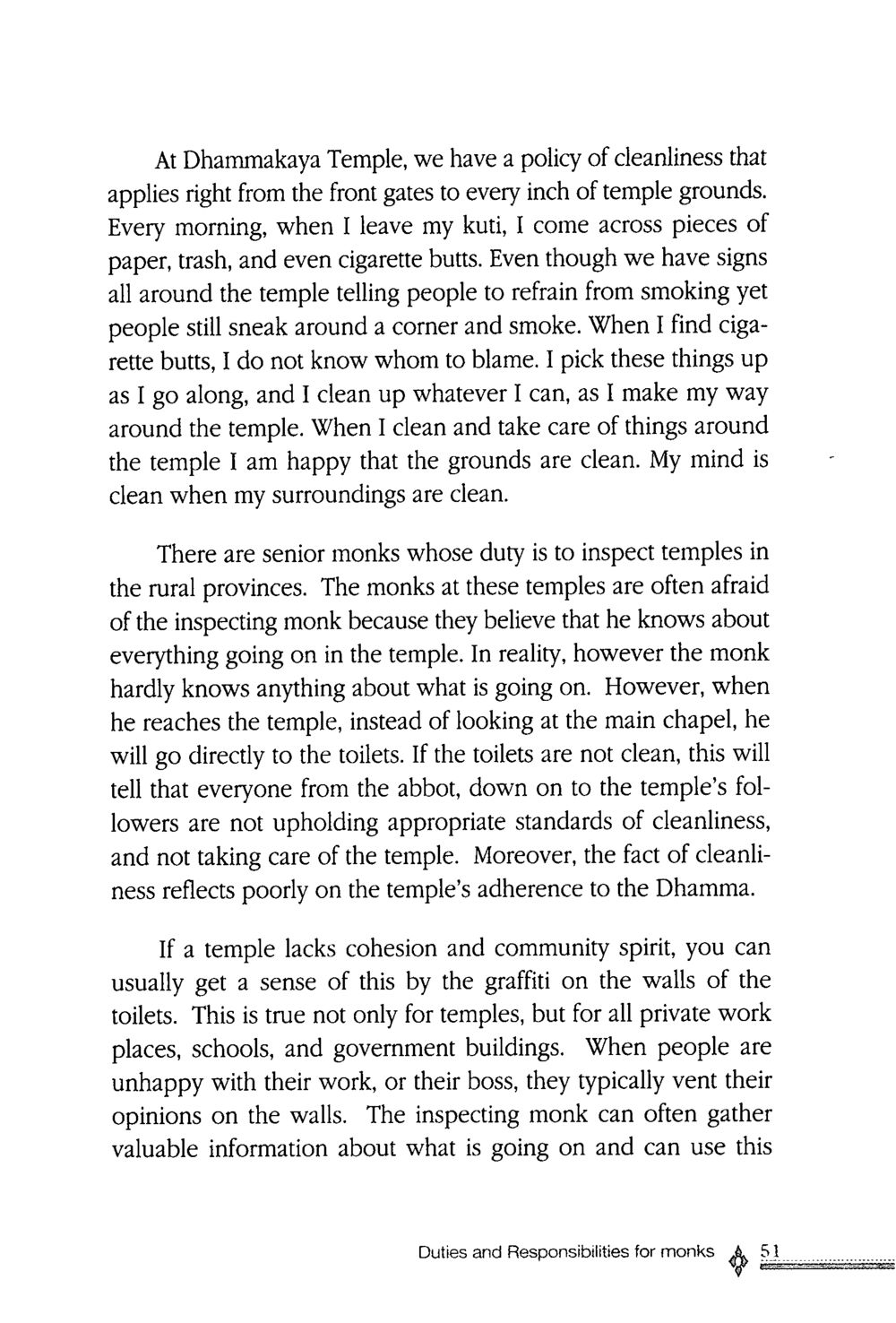Importance of Cleanliness at Dhammakaya Temple : หน้า 52/105
The ordination : หน้า 52/105 Explore the significance of cleanliness and community spirit at Dhammakaya Temple, emphasizing how it reflects adherence to Dhamma.
0 ครั้ง

สรุปเนื้อหา
ที่วัดธรรมกายมีนโยบายเรื่องความสะอาดที่บังคับใช้ตั้งแต่ประตูทางเข้าจนถึงทุกซอกทุกมุมของวัด ทุกเช้าเมื่อฉันออกจากกุฏิจะพบกระดาษ ขยะ และก้นบุหรี่ แม้ว่าจะมีป้ายบอกให้คนงดสูบบุหรี่ แต่ยังมีคนแอบสูบอยู่ เมื่อพบก้นบุหรี่จะไม่รู้จะโทษใคร ฉันจะเก็บสิ่งเหล่านี้และทำความสะอาดเมื่อเดินรอบวัด ความสะอาดทำให้ฉันมีความสุขและจิตใจสะอาด มีพระอาจารย์ผู้ตรวจสอบวัดในจังหวัด ซึ่งพระที่วัดเหล่านี้มักกลัวพระตรวจสอบเพราะเชื่อว่าเขารู้ทุกอย่าง แต่จริงๆ แล้วเขาแทบไม่รู้ แต่เมื่อมาถึงจะไปดูห้องน้ำ หากห้องน้ำไม่สะอาดจะแสดงให้เห็นว่าทุกคนไม่ได้รักษามาตรฐานความสะอาด และสะท้อนความเคารพต่อธรรมะ เมื่อวัดไม่มีความสามัคคีจะเห็นได้จากกราฟฟิตี้บนกำแพงห้องน้ำ ซึ่งเกิดขึ้นไม่แค่ที่วัด แต่ยังในที่ทำงาน โรงเรียน และอาคารรัฐบาล เมื่อคนไม่พอใจกับงานหรือหัวหน้างาน มักจะระบายผ่านกำแพง
หัวข้อประเด็น
-ความสำคัญของความสะอาด
-จิตใจสะอาด
-การตรวจสอบของพระภิกษุ
-ความสามัคคีในวัด









































































































